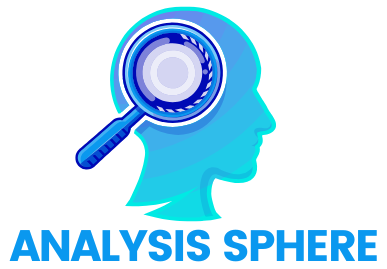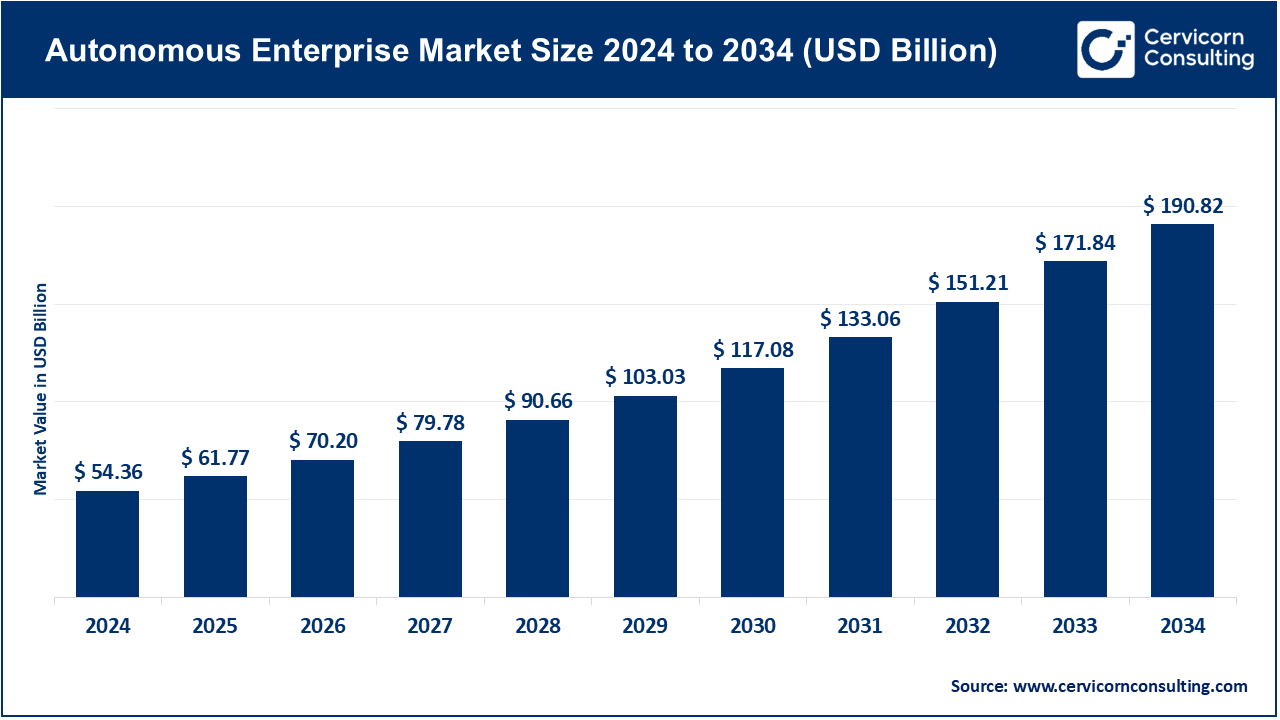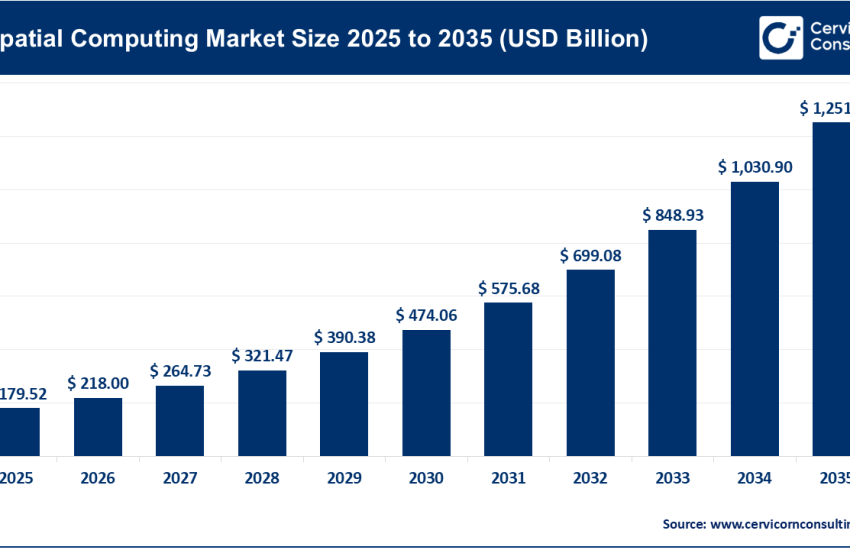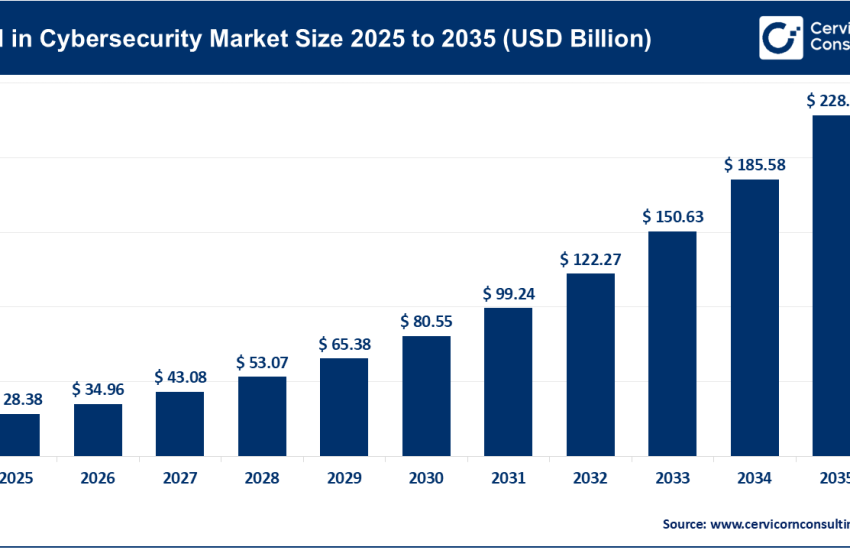Autonomous Enterprise Market Growth, Trends, Key Drivers, and Forecast by 2034
Autonomous Enterprise Market Overview
As of 2024, the autonomous enterprise market size was valued at approximately USD 54.36 billion and is projected to reach around USD 190.82 billion by 2034, reflecting a compound annual growth rate (CAGR) of 13.38% during the forecast period from 2025 to 2034.
How does generative AI contribute to the growth of autonomous enterprise market?
What are the main industries driving the growth of the autonomous enterprise market?
Information Technology and IT-enabled Services (ITeS)
- Role in the Market: As early adopters, IT and ITeS industries leverage AI and machine learning to improve operational efficiencies and streamline processes.
- Key Applications:
- Automating repetitive tasks like data entry and system monitoring.
- Enhancing service delivery through AI-driven chatbots and virtual assistants.
- Predictive analytics for IT infrastructure maintenance and resource optimization.
Banking, Financial Services, and Insurance (BFSI)
- Role in the Market: BFSI institutions are integrating autonomous solutions to maintain regulatory compliance and enhance customer satisfaction.
- Key Applications:
- Fraud Detection: AI analyzes large datasets to identify anomalies and prevent fraudulent transactions.
- Customer Service: Chatbots and virtual agents provide instant, 24/7 support.
- Risk Management: Predictive modeling helps in credit risk assessment and decision-making.
Retail and E-commerce
- Role in the Market: Retail and e-commerce companies use automation to manage complexities in inventory, supply chains, and customer interactions.
- Key Applications:
- Inventory Management: AI optimizes stock levels to prevent overstocking or shortages.
- Personalized Services: AI analyzes customer data for tailored product recommendations.
- Supply Chain Automation: Streamlined logistics using autonomous robots and predictive analytics.
Logistics and Transportation
- Role in the Market: Automation in logistics and transportation is essential for reducing costs and improving delivery precision.
- Key Applications:
- Route Optimization: AI determines the most efficient routes for deliveries.
- Fleet Management: Autonomous systems monitor and manage vehicle performance.
- Warehouse Operations: Robotics and automation streamline sorting, packing, and inventory tracking.
Manufacturing
- Role in the Market: Manufacturing is one of the largest beneficiaries of autonomous technologies, driving significant improvements in productivity.
- Key Applications:
- Robotics on Assembly Lines: Automated robots perform repetitive or complex tasks with precision.
- Predictive Maintenance: Sensors and AI detect equipment issues before failures occur.
- Quality Control: Machine vision systems ensure high production standards.
Healthcare
- Role in the Market: The healthcare sector adopts automation to manage patient care more efficiently and reduce administrative workloads.
- Key Applications:
- Patient Management: AI automates appointment scheduling and follow-ups.
- Administrative Tasks: Billing and medical coding are streamlined through AI systems.
- Data Analysis: AI processes patient data to assist in diagnosis and treatment planning.
Telecommunications
- Role in the Market: Telecommunications companies use autonomous systems to handle growing data demands and maintain network reliability.
- Key Applications:
- Network Management: AI ensures optimal network performance and predicts potential outages.
- Customer Service: Chatbots handle customer queries and troubleshoot basic issues.
- Fraud Prevention: AI identifies unusual patterns in network usage or billing activities.



